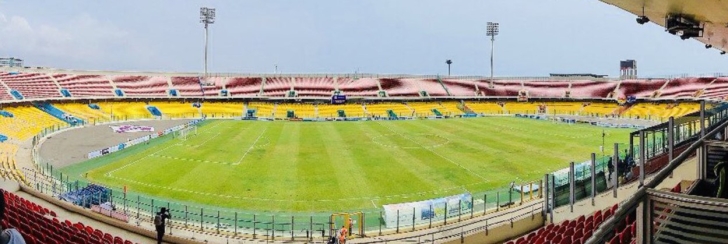The International Chamber of Commerce (ICC) has dismissed an international arbitration instituted by a construction firm, Micheletti Company Limited, against the government in May 2023, claiming damages for breach of contract relating to the rehabilitation of the Accra Sports Stadium.
The ICC's flagship International Court of Arbitration administers arbitration proceedings involving international commercial and business disputes.
The ICC Tribunal composed of Sadaff Habib as the President, Shadrack Arhin and Justin Amenuvor as members, in its partial award on jurisdiction, upheld the contention of the Attorney-General of Ghana that the arbitration proceedings were statute-barred as the action had been instituted out of the time allowed by the Limitations Act of Ghana.
Context
In April 2006 the Respondent, the Government of Ghana, executed an agreement with Waterville Holdings (BVI) Limited to rehabilitate a 40,000 seating capacity of several sports stadiums in the country in preparation for the 2008 African Nations Cup.
The stadium included the Accra Sports Stadium, the El-Wak Stadium in Accra, and the Baba Yara Sports Stadium in Kumasi, Ghana. Under the agreement, the claimant, Micheletti, was the local sub-contractor for rehabilitating the Accra Sports Stadium in Accra, while Consar Limited was the local sub-contractor for the Baba Yara Sports Stadium in Kumasi.
On August 1, 2006, however, the government terminated the agreement with the contractor on the basis that the agreement had not received approval from Cabinet. The government subsequently entered into negotiations with the sub-contractors, Micheletti Co. Ltd and Consar Ltd, to continue with the rehabilitation of the stadia.
The value of the work undertaken by the contractor was certified and the government of Ghana duly paid for all the work certified as having been discharged. The arbitration proceedings instituted in 2023 were in respect of claims by Micheletti that had allegedly not been honoured by the government.
Micheletti claimed, among others, special damages for the default of the government, the sum of $400,000, interest on the said sum from February 2009, at the current Bank of Ghana forex rate plus three per cent point till date of final payment and administrative fees and arbitral cost.
While denying liability for any indebtedness, the Office of the Attorney-General raised a preliminary legal objection by article 5(1) of the ICC Rules of Arbitration.
Assistant State Attorney, Anne-Marie Ayanru, contended that the claimant had not exhausted the dispute resolution mechanisms procedure applicable under the FIDIC General Conditions of Contract, which required the parties to submit any dispute arising to a Dispute Adjudication Board (DAB) at first instance and, therefore, the tribunal had no jurisdiction to determine the claim by Micheletti.
Further, Ghana argued that even if the tribunal were to find that it had jurisdiction, the claimant’s claim having been filed more than 14 years after the cause of action arose, was statute-barred under Ghanaian law, which is the substantive law of the agreement.
The right of the claimant to initiate any dispute resolution mechanism for a matter bordering on breach of contract, according to the Office of the Attorney-General, could only be enforced within six years after the accrual of the cause of action, which occurred on May 19, 2009.
The tribunal agreed to a bifurcation of issues, which allowed a determination of the preliminary objection and the claim of the action being statute barred, first. Consequently, the parties filed full arguments in respect of the preliminary issues raised by the government.
The award
Delivering its award on the legal objections by Ghana, the ICC found that it had jurisdiction to hear the matter because the claimant had taken steps to notify the respondent of its intention to refer the dispute to a dispute adjudication board before commencing the arbitration proceedings, but such steps were ignored by the respondent.
The tribunal, however, agreed with the government that the action was statute-barred under Ghanaian law, having been instituted way beyond 2015, that is, more than six years allowed by Ghana’s Limitation Act, 1972 - NRCD 54, which made the claim inadmissible.
The tribunal, therefore, proceeded to dismiss the claims by Micheletti entirely.
The tribunal is currently considering submissions by the parties on the amount of costs to award in favour of the government, following the dismissal of the claim and will soon decide the question of the quantum of costs.
Latest Stories
-
Which will you vote for in 2024 Election: Honesty, Character, or Campaign Promises?
3 hours -
The ball is in Iran’s court after US pressure pays off
3 hours -
‘Japa’ sweeps Nigeria’s hospitals
4 hours -
Obuasi: Catholic Voices GH choral peace concert unites NPP, NDC
4 hours -
Lordina Supports NDC campaign in Ketu North with donation of medical equipment to Afife Health Centre
4 hours -
MTN Foundation delivers crucial technology tools to Eastern Regional Hospital
4 hours -
Galien Forum Africa: Enhaning African women’s role in climate and environmental crises
10 hours -
7th Galien Africa Forum ends with emphasis on health, innovation, and climate action in Africa
10 hours -
Ruthless Barcelona thrash Real Madrid to go 6 points clear
10 hours -
National Farmers’ Day scheduled for November 8
11 hours -
Samson’s Take: Why over 75% vote but only 5% join protests
12 hours -
Krachi East Chiefs applaud Bawumia for campaigning on issues with evidence
13 hours -
National Security Ministry dismisses Reuters’ claims that militants are using Ghana as logistical base
13 hours -
BOST and its CEO win big at 8th Ghana Energy Awards
14 hours -
Accused person in protest over alleged $3m BOST scandal discharged
15 hours

